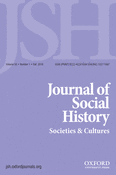Her neighbor’s wife: a history of lesbian desire within marriage
Title X Turns 50

History and the Study of Inequality

A class act: Mary Quant and Terence Conran in the long sixties

The past of predicting the future: A review of the multidisciplinary history of affective forecasting
Remaking Radicalism: A Grassroots Documentary Reader of the United States, 1973–2001
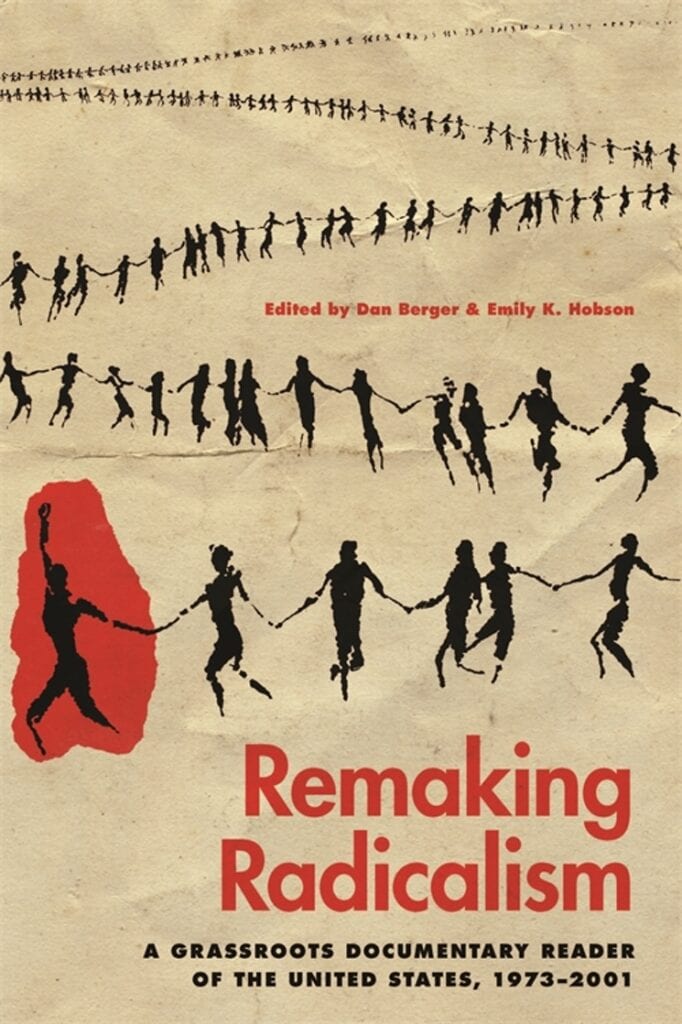
Professionalization of social work in colonial India: Glancing at the history of social work in India before 1936

Feminisms: A Global History
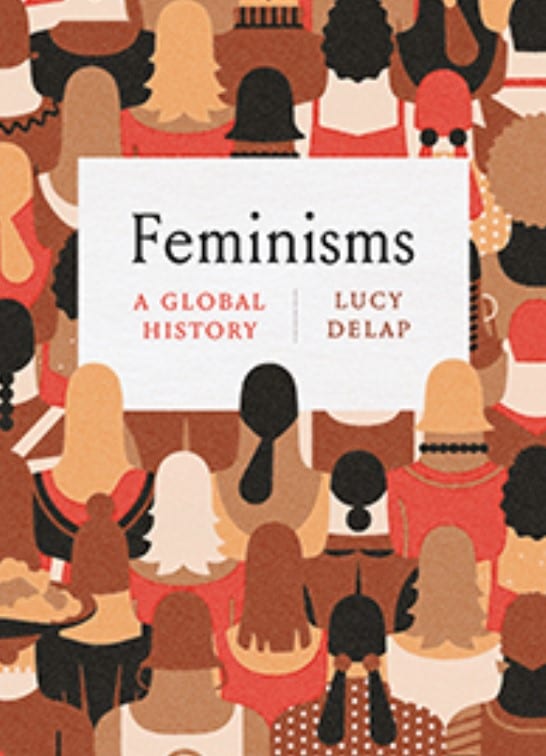
SNCC’s Stories The African American Freedom Movement in the Civil Rights South
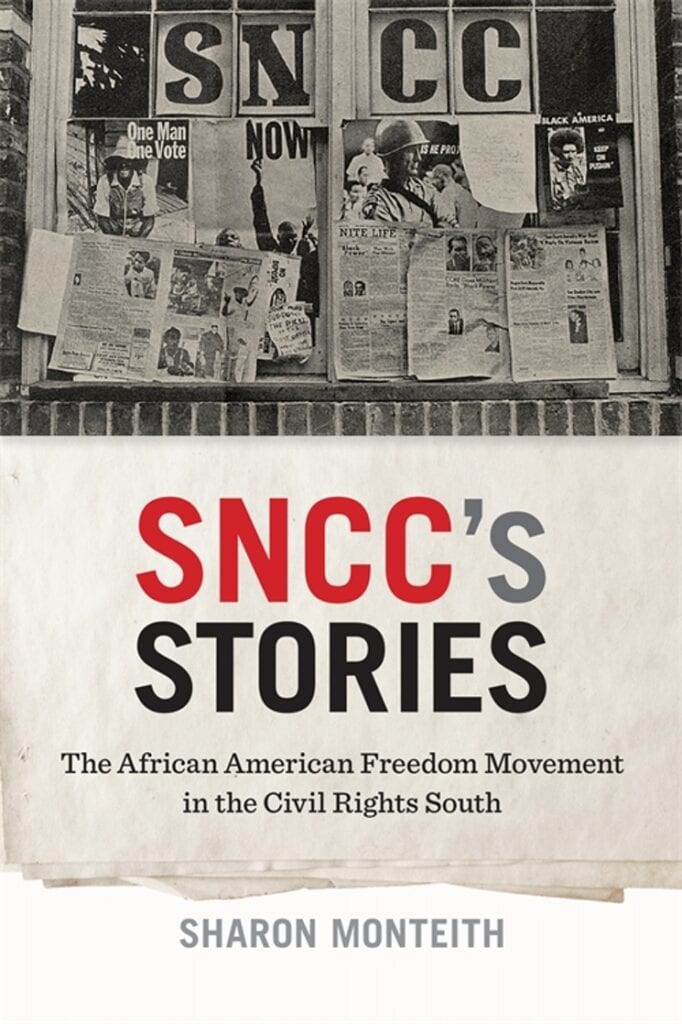
Conversations with Carl Jung and Reactions from Ernest Jones
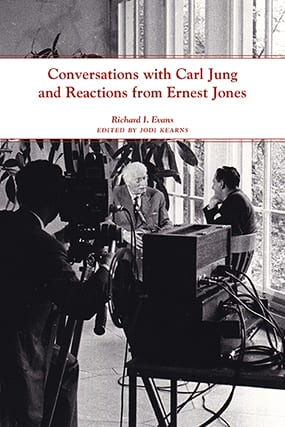
Emotionally Disturbed: A History of Caring for America’s Troubled Children

Sickness in the Workhouse: Poor Law Medical Care in Provincial England, 1834-1914
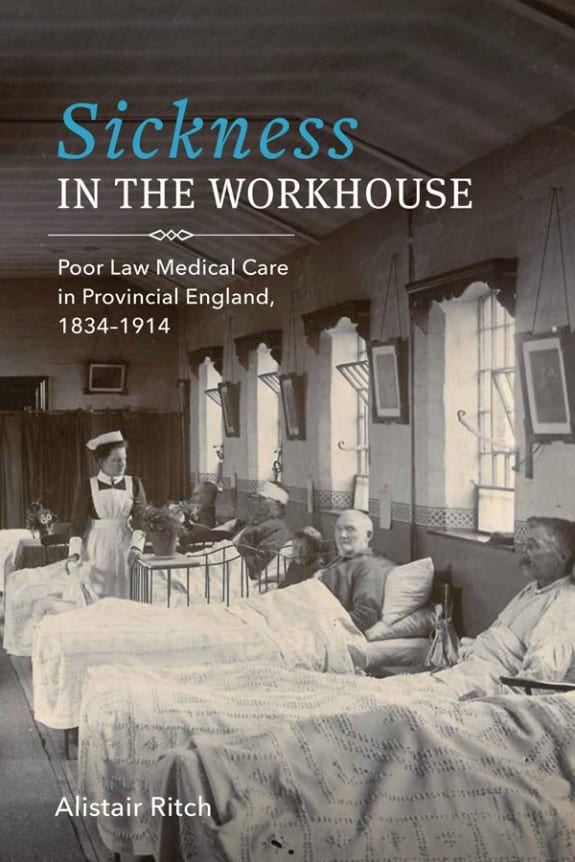
‘Naked and starving’: letters tell how English paupers fought for rights 200 years ago

Opiates and the ‘Therapeutic Revolution’ in Japan

Ideology and science: The story of Polish psychology in the communist period
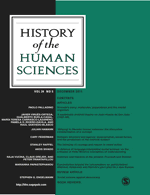
New books on the early history of British psychoanalysis: An essay review.

Austerities and Aspirations: A Comparative History of Growth, Consumption, and Quality of Life in East Central Europe since 1945
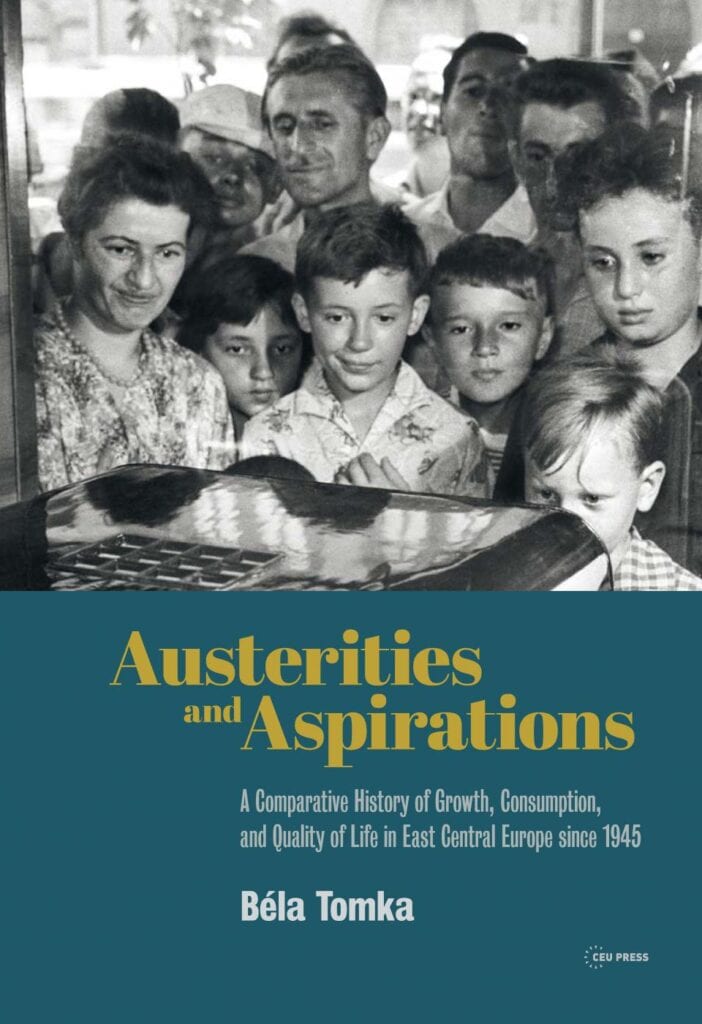
‘New eugenics,’ gender and sexuality: a global perspective on reproductive politics and sex education in Cold War Europe

Psychology qua psychoanalysis in Argentina: Some historical origins of a philosophical problem (1942–1964)

Women and the Irish Revolution: Feminism, Activism, Violence
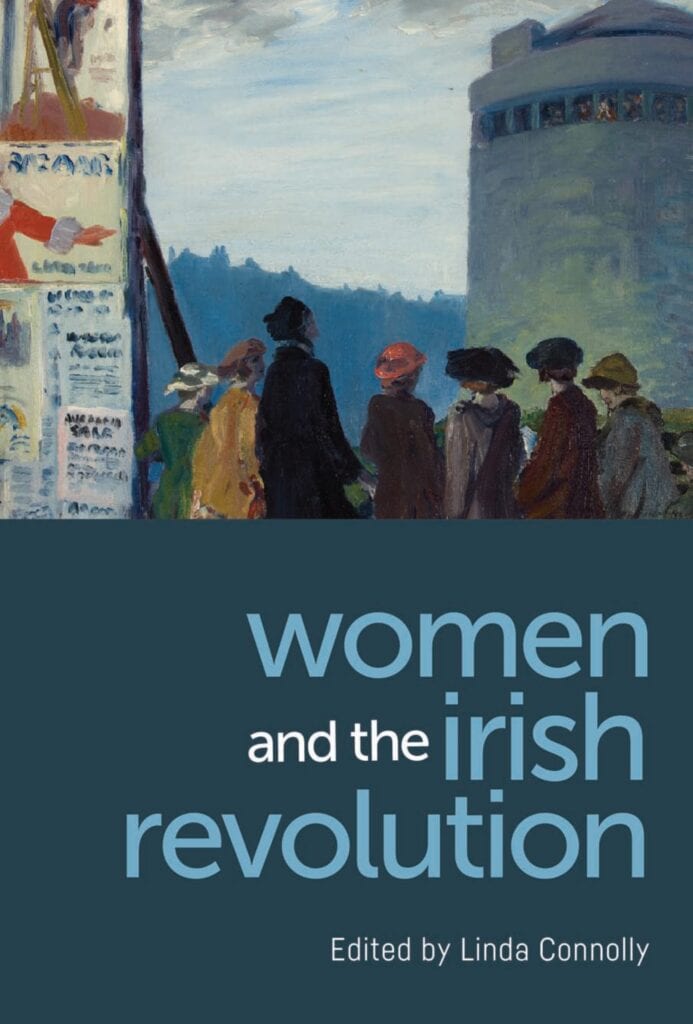
It’s more than just news: Print media, the Tuskegee Syphilis Study and Collective Memory among African Americans

Abstract
This study examines how media can influence and shape collective memory through cultural objects such as magazines. Examination of Jet and Ebony magazines’ coverage of the Tuskegee Syphilis Study, as well as, changes in the narrative over time, reveal potential mechanisms that might have influenced African Americas’ collective memory surrounding this event. Data for this study come from news articles about The Tuskegee Syphilis Study in Jet and Ebony magazines from 1972–2016 (N = 49). Content analysis was used to analyze and discover themes in each of the 49 news stories. Findings show that the journalistic coverage of The Tuskegee Syphilis study by these magazines centered around themes of exploitation of uneducated victims, racism and blame, genocide, medical mistrust and deliberate injection with syphilis, reflecting past and current beliefs of African Americans’ remembrance of the study.
“All Are Welcome Here”?: Navigating Race, Class, Gender, Sexual Orientation, Age, and Disability in American Feminist Coffeehouses of the 1970s and 1980s

Marx or Malthus? Population debates and the reproductive politics of state-socialist Poland in the 1950s and 1960s

‘Animal instincts’: the sexual abuse of women with learning difficulties, 1830s–1910s
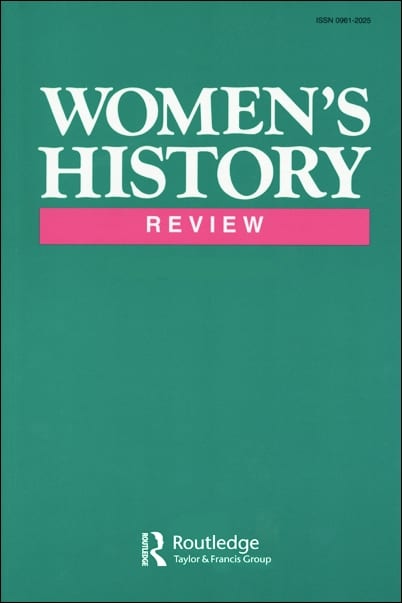
50 years of gay liberation
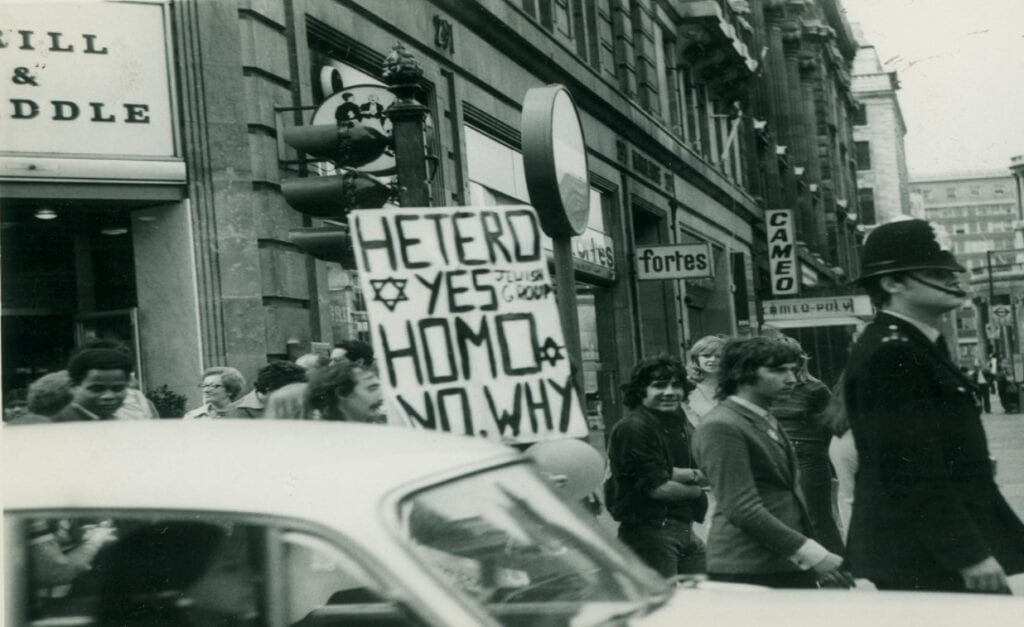
The Decorated Tenement: How Immigrant Builders and Architects Transformed the Slum in the Gilded Age

A White Lie: Women’s Voices from Gaza Series

Inventing Elvis: An American Icon in a Cold War World
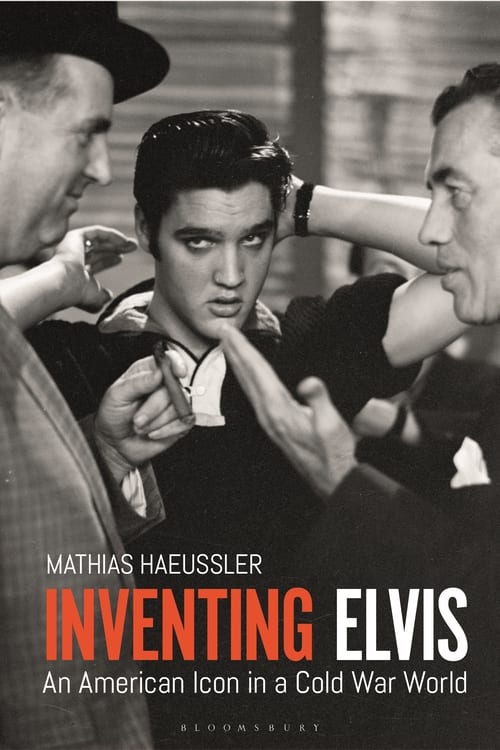
Building the Welfare State Is About Building Democracy
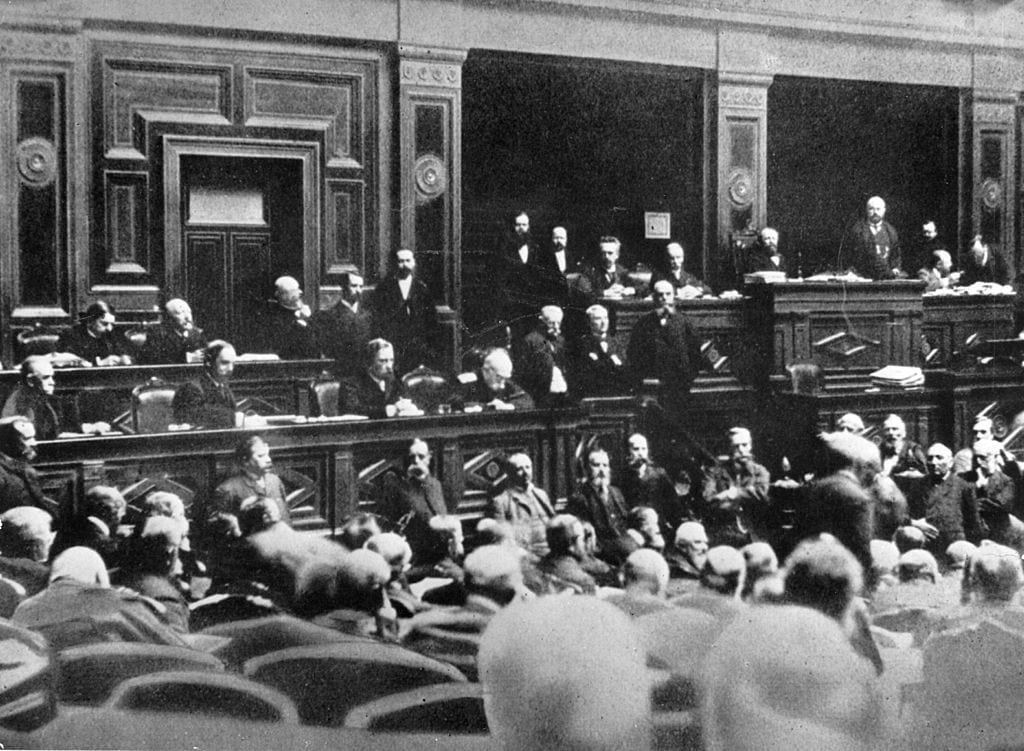
Otto von Bismarck (1815–1898) addressing the Reichstag circa 1880.
The Rebuilding of Fragmented Memories, Broken Families and Rootless Selves among Danish Care Leavers
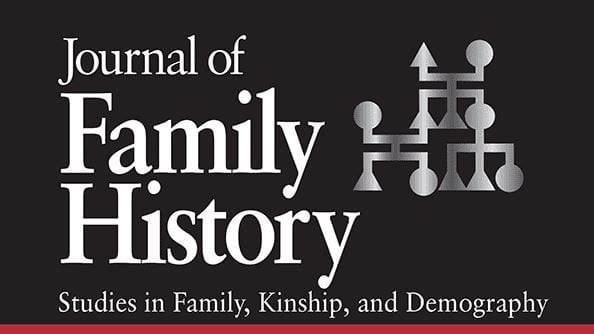
Refining the National Family: Children’s Institutions and Their Aftermath, Ireland and Australia

Sexual abuse by superintending staff in the nineteenth-century lunatic asylum: medical practice, complaint and risk

Reflections on the heart: medicine, emotion and history

In Matters of the Heart: History, Medicine, Emotion (
Except that the heart-as-pump is…
A Queer New York: Geographies of Lesbians, Dykes, and Queers
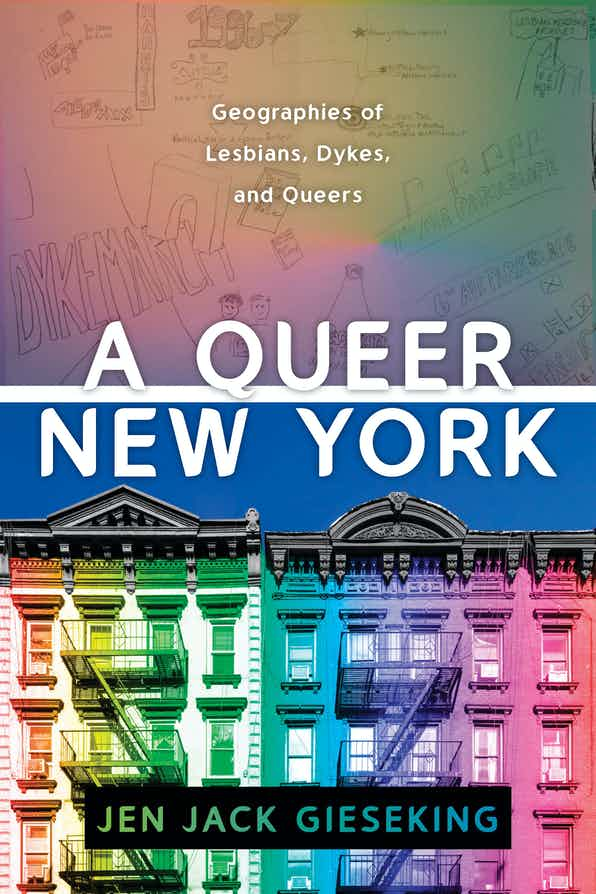
Women’s words, women’s bodies: late nineteenth century English feminisms in the ‘Interview’ column of the Women’s Penny Paper/Woman’s Herald (Oct. 27, 1888–Apr. 23, 1892)

The mentally ill and how they were perceived in young Israel

Working in cases: British psychiatric social workers and a history of psychoanalysis from the middle, c.1930–60

The Folk Singers and the Bureau: The FBI, the Folk Artists and the Suppression of the Communist Party USA, 1939-1956

Urban Regeneration and Neoliberalism The New Liverpool Home

Great Depression social work story has lessons for today

Dorothy Kahn
The Fall of America Journals, 1965-1971

Lost Souls: Women, Religion and Mental Illness in the Victorian Asylum

Wolfenden’s Women: Prostitution in Post-war Britain
Mothering in the frame: Cinematic microanalysis and the pathogenic mother, 1945–67
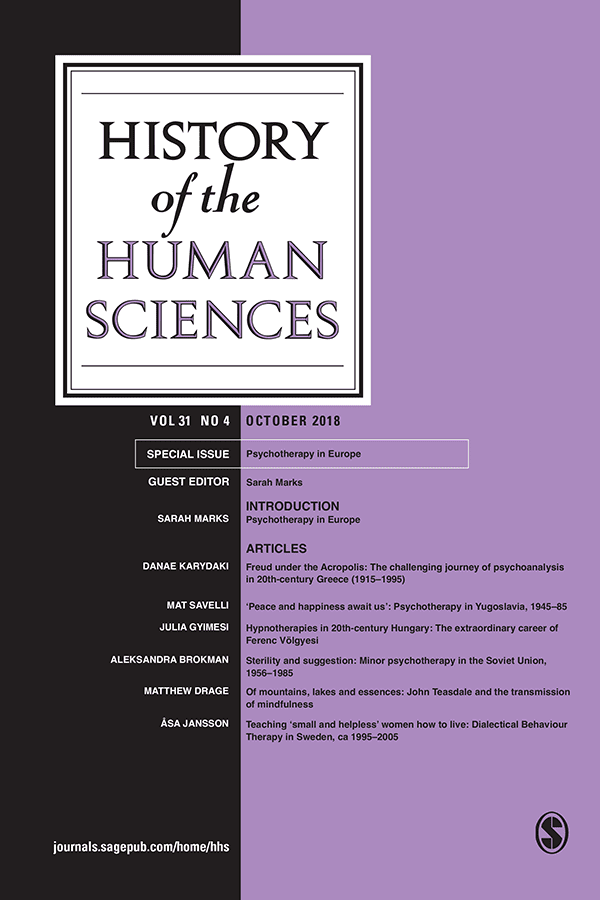
Afterlives: Testimonies of Irish Catholic Mothers on Infant Death and the Fate of the Unbaptized

The history of mental health policy in Turkey: tradition, transition and transformation

Women in black: the surprising history of widows

Negotiating Memory and Restoring Identity in Broken Families in Eighteenth-century Denmark

‘Dear Mrs Brown’: social purity, sex education and the Women’s Christian Temperance Union in early twentieth-century South Africa
